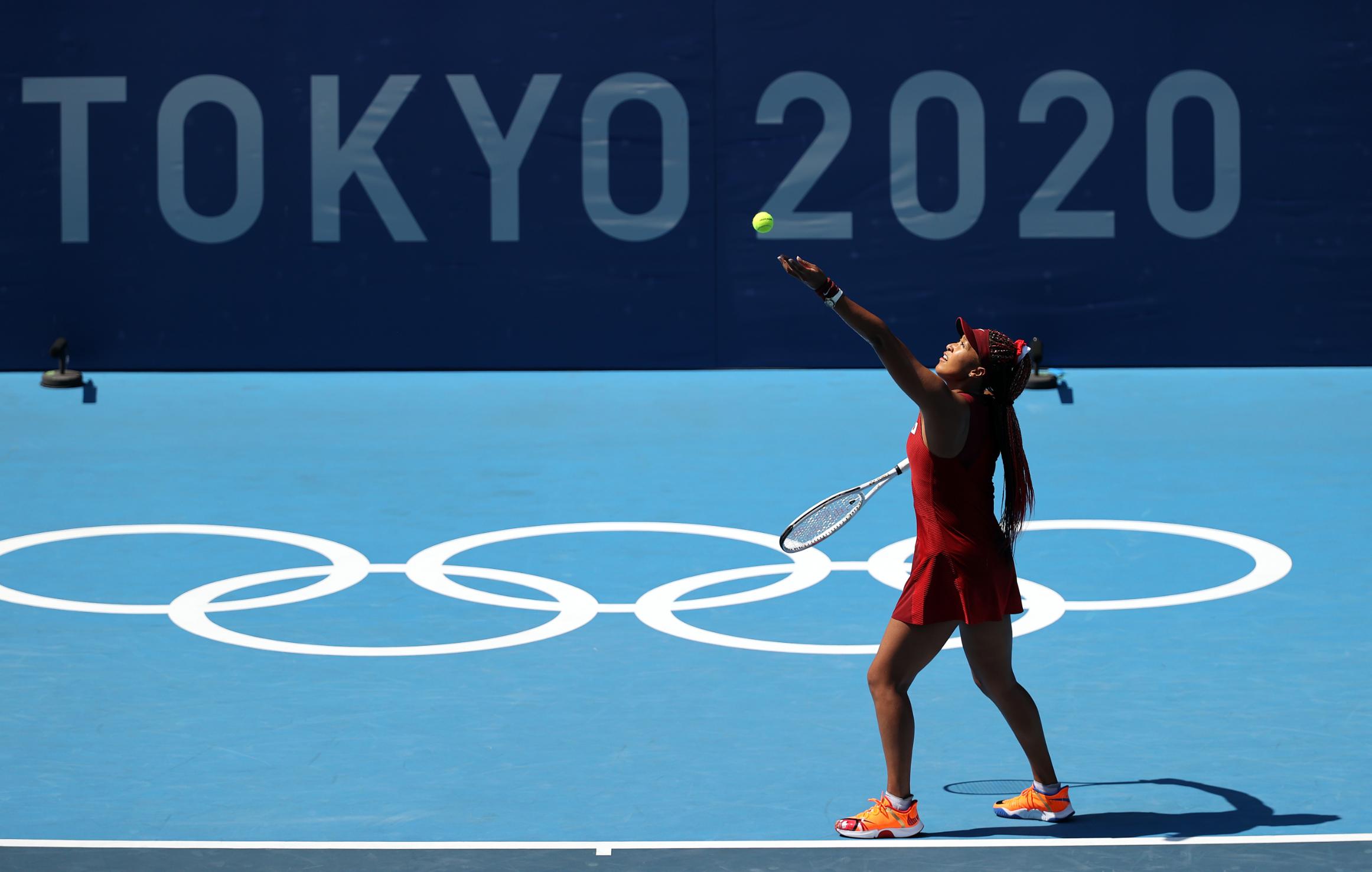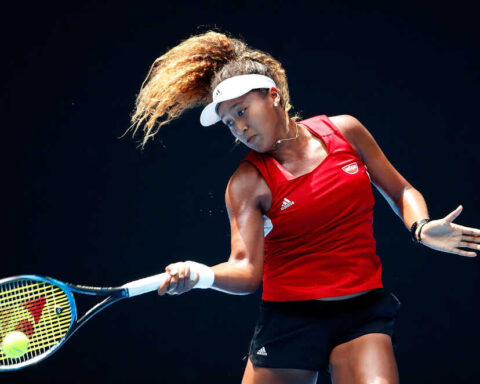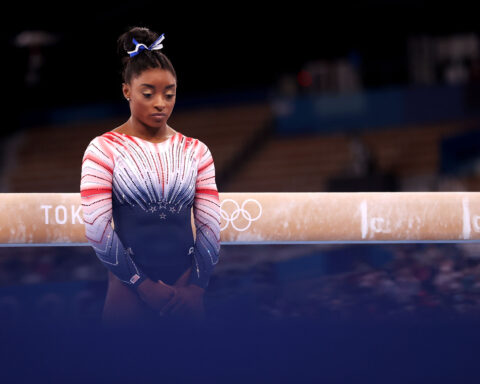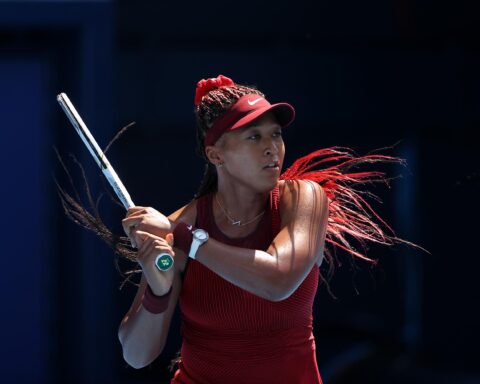These are early days for the Tokyo Olympics, but Naomi Osaka is quickly emerging as the headline act.
Two days after lighting the cauldron at the Opening Ceremony — a moment she called “the greatest athletic achievement and honor” of her life — Osaka took to the tennis court for her first game in almost two months on Sunday, defeating China’s Saisai Zheng 6-1 6-4 on Ariake Tennis Park’s Centre Court.
Wimbledon champion Ashleigh Barty’s surprise loss against Sara Sorribes Tormo earlier on Sunday means Osaka is now the top-ranked player in the women’s draw in her bid to become the first Japanese woman to win an Olympic tennis medal.
The four-time grand slam champion hadn’t played since withdrawing from the French Open at the end of May, which followed her decision not to undertake media duties for mental health reasons.
She chose not to play in Wimbledon, too, but has arrived in Tokyo rejuvenated and ready to make her mark.
“This, playing the Olympics, has been a dream of mine since I was a kid, so I feel like the break I took was very needed,” the 23-year-old Osaka told reporters. “I feel definitely a little bit refreshed and happy again.”
Baking heat
Extreme heat and humidity has proved a challenge for tennis players in Tokyo and Osaka’s match took place in baking, midday heat, broken occasionally when a light breeze swept across the court.
Her entrance was greeted by an enthusiastic stadium announcer and a smattering of applause from the near-empty stands, which mainly comprised teammates, officials and members of the media.
Despite her absence from the tour, Osaka showed few signs of rustiness as she opened her Olympic campaign, cruising through the first game with three aces, before twice breaking Zheng to race into a 4-0 lead in the first set.
World No. 52 Zheng, who is appearing in her second Olympics, had opportunities to break back in the fifth game, only for Osaka to hold on and wrap up the first set in just 32 minutes.
That dominance continued into the second set as Osaka secured another early break of serve, but this time Zheng was able to build more of a foothold and had two break points to level the set at 4-3.
It proved to be only a glimmer of hope, however, as Osaka bounced back to take the game and, shortly afterwards, the match.
“I felt really nervous being in Japan and playing here for the first time in maybe two years, and for it to be my first Olympics,” said Osaka. “It was definitely really nerve-wracking. But I am glad I was able to win, she is a very tough opponent.”
History maker
The game, originally scheduled for Saturday, was moved to Sunday ahead of the opening ceremony, fueling speculation that Osaka, who was born in Japan and moved to the US when she was three years old, might have been selected to light the cauldron.
She duly did, joining the likes of boxer Muhammad Ali –– at the Atlanta Games in 1996 — and Cathy Freeman four years later in Sydney to take part in a historic moment that will live long in the memory.
Osaka is also the first tennis player to have the honor of lighting the cauldron.
“Naomi Osaka is a home favorite and a lot of eyes are on her,” men’s world No. 1 Novak Djokovic said after his victory on Saturday.
“Being at home playing is a lot of pressure, but it’s great for our sport just in general to see that there’s a lot of attention towards it.”
Osaka is one of Japan’s star athletes, her face displayed on billboards all around Tokyo and local media celebrated the decision to make her the final torch bearer of these Olympics.
Newspaper Nikkei called it a moment of “diversity and harmony,” while Mainichi Shimbun described how top athletes with overseas roots “symbolized diversity, one of the visions of the Olympic Games.”
In spite of her nerves on her Olympic debut, Osaka looked composed on the court. She next faces Switzerland’s Viktorija Golubic for a place in the third round of a women’s draw that is without a number of big names, including Serena Williams, Victoria Azarenka, Angelique Kerber, Simona Halep and Bianca Andreescu.
That, however, is unlikely to stop home fans, who are being kept away from venues in Tokyo amid the pandemic, from keeping a close eye on the tournament and Osaka’s progress.







